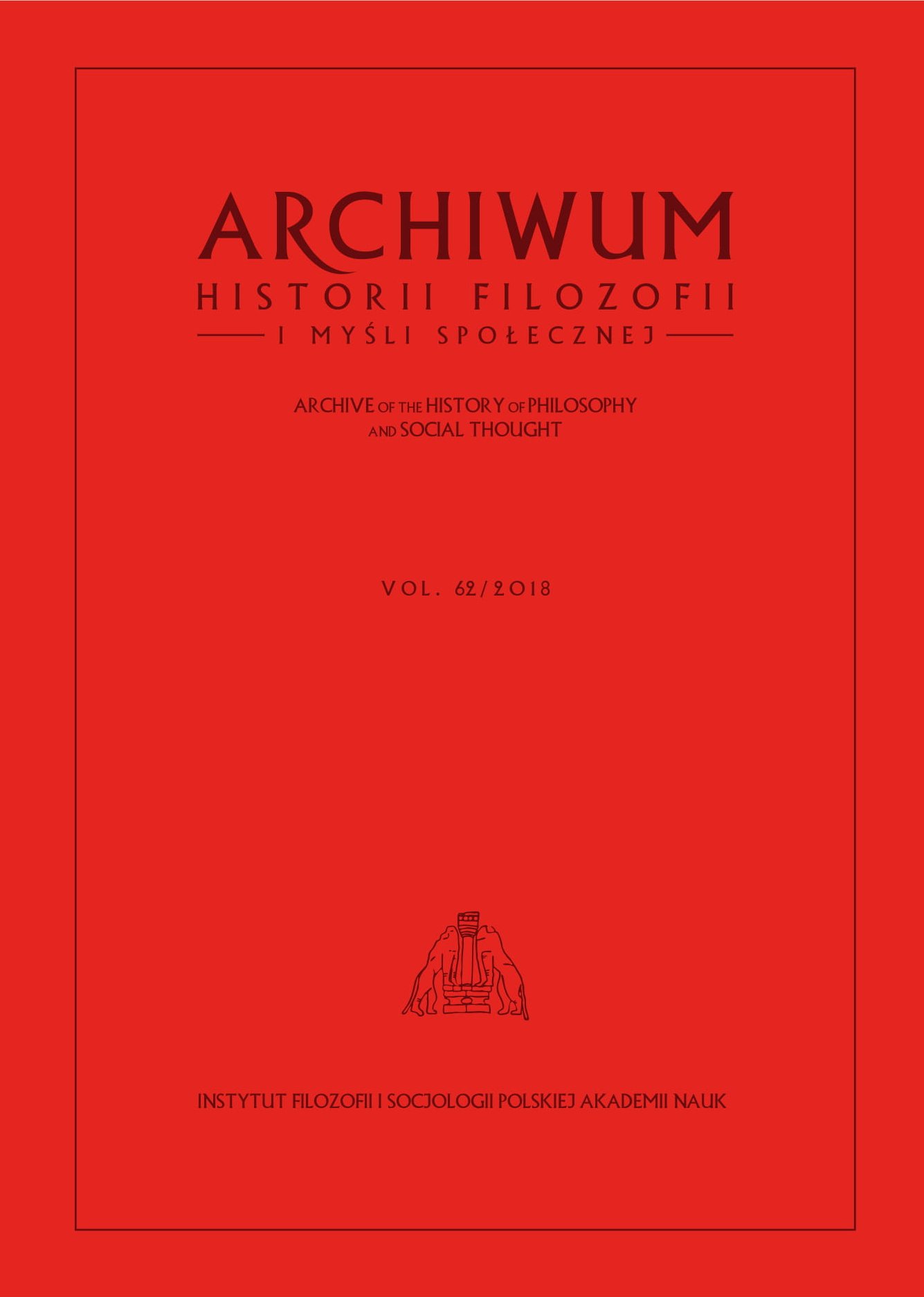Rzeczenie jako o-rzeczenie, czyli orzekanie o rzeczy. Arystotelesa pytanie o filozofię i jej rzecz
Speaking as Predication. Aristotle’s Question concerning Philosophy and Its Matter
Author(s): Seweryn BlandziSubject(s): Hermeneutics, Ontology
Published by: Instytut Filozofii i Socjologii Polskiej Akademii Nauk
Keywords: Aristotle; participle being as exponent of predication; Being as noun; substance; name; meaning; general concept; object in general;
Summary/Abstract: The author puts forward hermeneutic rethinking of Aristotle’s theory of being, freed from later mediation (Aristotle’s commentators, scholastics, modern ontology), which unwittingly still influence the original understanding of his predicative ontology. The term ‘being’ (TO on) as a nominalized form of ‘being something’ (TO eívaí TITO on) does not denote existence (or ‘the existent’), Being as object in general or the notion of Being or Being as a notion, but expresses a general truth claim of predication.The form on (‘being’), the participle of eívaí (‘to be’) belongs to speech, it is a carrier of predication, but not a straight object (res), of which (in later metaphysics) we predicate as of ‘Being’ (to on, ens). Metaphysics shifted the stress from predicativity ov, that is, from the carrier of predication onto what is predicated (subject). As a result in the Latin tradition, the function of ov is obscured a limine by the substantive and substantial understanding of what is predicated as ens.This shift of stress results in a substantivization of ov under the influence of what is predi¬cated (res). The linguistic element undergoes conflation into one with what is predicated. As a result of this reificating substantivization, the predicative Greek ov is translated into Latin as the subjective (id) quod est (‘what is’), which later is used interchangeably with ens. We could call it a transformation of the universal predicate of ‘being something’ into the universal name ‘Being’, and the most general concept.The grammatical form (to) 61/ is a linguistic exponent of predicativity, whose real designate is oůoía, that is essence or substance. In short, the predicating element is ov, the predicated - ou oía, the latter as definitional essence or individual substance (toSe tí).Aristotle does not dwell on the sense or meaning of to ov, but asks the question tito ov and answers concretely: touto eotí tię h oůoía, Being (res) is essence or substance.In this paper the author also takes up the controversial issue of Aristotle’s ‘prime’ philosophy, mostly on the basis of Metaphysics, Book VI, which continues considerations published in the paper Aristotle’s Prote Philosophia: Metaphysics, Ontology, Theology or Methodology?, “Archive of the History and Philosophy of Social Thought”, vol. 61/2016, pp. 273-286.
Journal: Archiwum Historii Filozofii i Myśli Społecznej
- Issue Year: 62/2017
- Issue No: 62
- Page Range: 199-228
- Page Count: 30
- Language: Polish

